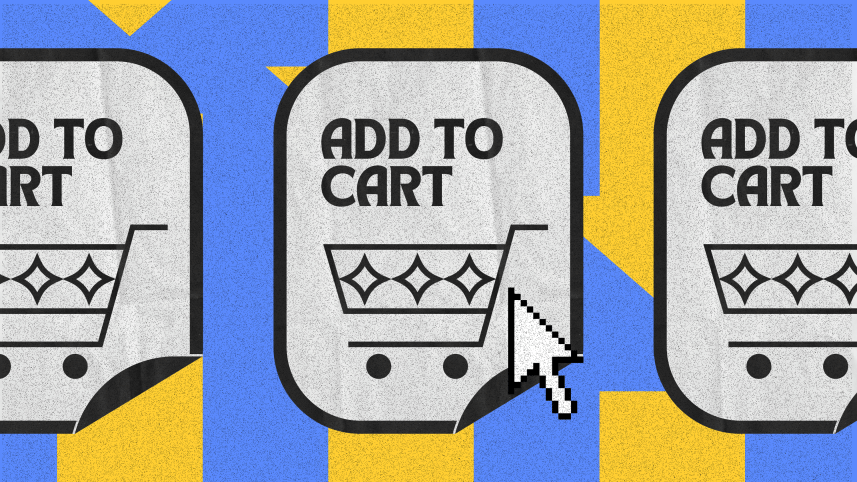E-commerce marketing 101: Turning browsers into buyers

Imagine waking up to find your favourite online store offering the exact product you've been searching for - at a discounted price. Ever wondered how that happens? That's the magic of e-commerce marketing, where businesses use innovative strategies to reach customers at the right time.
In today's digital age, simply having an online store isn't enough. Understanding how to market products effectively is the key to standing out in the crowded e-commerce world. Whether you're a beginner stepping into this field or a business owner aiming to boost sales, mastering e-commerce marketing can open doors to endless opportunities.
Understanding e-commerce marketing for beginners
Dr Md. Iftekharul Amin, an academician and professor at the Institute of Business Administration (IBA), University of Dhaka, explains the term: "E-commerce stands for electronic commerce, which is all about driving people to an online store and converting them into customers by promoting an online store to increase sales. It involves various tactics to attract visitors and convert them into customers."
As e-commerce marketing rapidly grows in Bangladesh, beginners may find it challenging to survive in the competitive landscape. Success lies in mastering the fundamentals of e-commerce marketing.
Md Sajedur Rahman, Director at Star Tech & Engineering Ltd, says, "You can't expect to succeed in the crowded world of e-commerce without understanding the basics—things like SEO, social media engagement, content marketing, and even data analytics. These tools empower beginners to navigate the digital landscape effectively."
Required key skills
A successful e-commerce marketer must first and foremost understand their target audience. It's about more than just demographics; it's about grasping customer needs, challenges, and expectations. Understanding the right product for the right customer is key to satisfaction. Sajedur adds, "E-commerce marketers must focus on learning to make data-driven decisions and conduct result-oriented experiments to optimise their strategies."
Since e-commerce marketing is fully online, beginners must possess basic IT skills. M M Rizvi Khan, Founder & CEO of the digital marketing firm Rocket Rocker, says, "The first and foremost criterion for success in e-commerce marketing is having basic IT skills. Entrepreneurs should develop skills like website development and SEO marketing, as they are crucial for establishing a strong foundation." Rizvi continues, "Another essential skill is market and product research. Identifying reliable sources for products and analysing market demand is vital for success in e-commerce marketing."
Effective ways for successful growth
Many beginners fail in e-commerce marketing due to a lack of understanding about the right growth strategies. According to Sajedur, success comes from balancing both social media marketing and SEO: "Social media marketing helps build direct connections with customers through interactive content, live sessions, and real-time responses."
"Ultimately, a smart approach combines both. SEO-friendly content, like blogs and product guides, helps drive organic traffic while social media amplifies reach and engagement. Data-driven insights from both channels help refine strategies based on user behaviour. Beginners who focus on meaningful engagement, clear communication, and continuous learning will see steady growth," he adds.
SEO plays a critical role in attracting customers to an e-commerce site. Md Ashadugzamman Nour, Digital Marketing & SEO Expert at Daffodil Family, says, "When a customer searches for something online, the first website that appears is likely the one they'll visit. There's a 95% chance they will purchase from that site. The primary goal of an e-commerce site should be to sell products using SEO and social media marketing."
Beginners often make common mistakes that can lead to problems down the line. One key mistake is overlooking data analytics or neglecting customer experience. Sajedur shares an example from his experience: "Early on, our company identified gaps in post-purchase support and product availability across channels. To resolve this, we created warranty claim centres and a structured Return Merchandise Authorization (RMA) system."
"We also faced inventory issues. Without real-time tracking, maintaining stock consistency across online platforms was tough. By implementing synchronised inventory management, we ensured customers could always find what they needed, whether online or in-store," he adds.
Preparing for the future
The e-commerce landscape is rapidly evolving. Trends like AI, machine learning, personalisation, and voice search are shaping the future. New entrepreneurs need to stay ahead of the curve.
Dr. Iftekharul advises, "New entrepreneurs should prioritise customer-centric innovation, leverage scalable tools, and build authentic relationships. Staying agile and data-informed will be critical in navigating the dynamic e-commerce landscape."
E-commerce marketing is an exciting and ever-changing field. By mastering its fundamentals, gaining hands-on experience, and staying informed about new trends, beginners can find success in this thriving industry.




 For all latest news, follow The Daily Star's Google News channel.
For all latest news, follow The Daily Star's Google News channel.
Comments